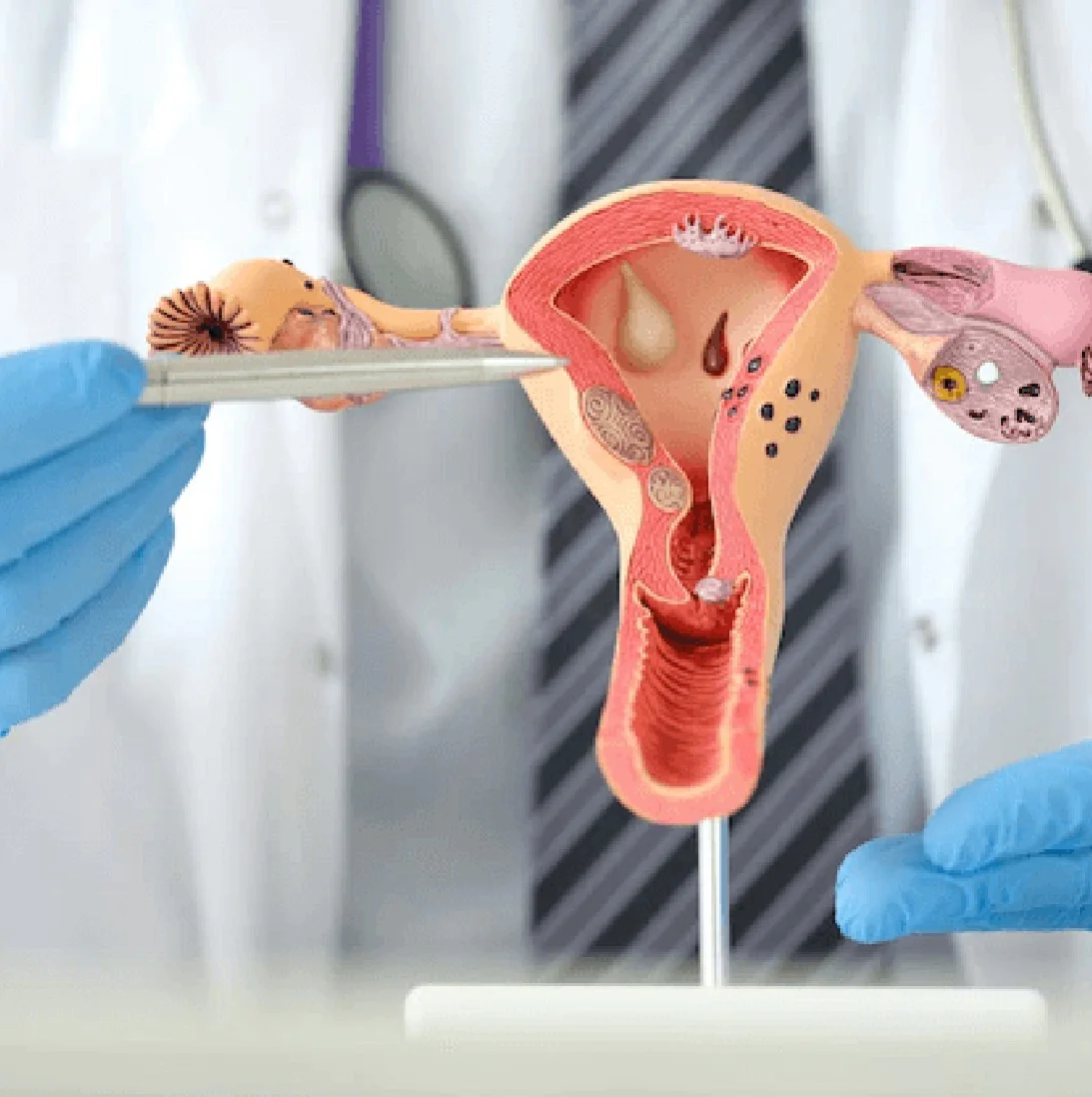
Department of Oncology
Welcome To Gangasheel Hospital
What is Ovarian Cancer ?
Ovarian cancer is a cell growth that forms in the ovary. Cells multiply rapidly and can invade and destroy healthy body tissue.
The female reproductive system has two ovaries, one for her on each side of the uterus. Each ovary is about the size of an almond and produces eggs (eggs) and the hormones estrogen and progesterone.
Treatment for ovarian cancer usually includes surgery and chemotherapy.
When ovarian cancer first develops, it may not cause any noticeable symptoms.
When symptoms of ovarian cancer appear, they are usually due to other, more common conditions.
Signs and symptoms of ovarian cancer may include:-
- Abdominal bloating or bloating
- Feeling full quickly after eating
- Weight loss
- Pelvic discomfort
- Fatigue
- Back
- Changes in bowel habits such as constipation
- Need to have frequent bowel movements to urinate.
The cause of ovarian cancer is not known, but doctors have identified things that may increase the risk of the disease.
Doctors know that ovarian cancer starts when cells in or near the ovaries cause changes (mutations) in the DNA. Her DNA in a cell contains instructions that tell the cell what to do. This change causes cells to grow and multiply rapidly, forming clumps of cancer cells (tumors).
Cancer cells continue to live when healthy cells die. They can invade nearby tissues and spread (metastasize) away from the original tumor to other parts of the body.
Symptoms and Causes
There is no sure way to prevent ovarian cancer. But there are ways to reduce your risk:
Consider taking oral contraceptives. Ask your doctor if birth control pills (oral contraceptives) are right for you. Taking oral contraceptives reduces the risk of ovarian cancer. However, these drugs come with risks, so consider whether the benefits outweigh the risks in your situation.
Discuss your risk factors with your doctor. Talk to your doctor if you have a family history of breast and ovarian cancer. Your doctor can determine what this means for your own cancer risk. You may be referred to a genetic counselor to help determine if genetic testing is right for you. If a genetic mutation that increases the risk of ovarian cancer is found, surgery to remove the ovaries may be considered to prevent cancer.
Treatment depends on many factors, including:-
- Cancer type, stage, and grade
- Age and general health of the person
- Personal preferences
- Accessibility and affordability of treatment Price
- Options usually include surgery. Choices depend on the type of cancer. And how far did it spread? Surgical options include hysterectomy, removal of one or both ovaries, and removal of affected lymph nodes. Doctors discuss appropriate options with patients.
- Chemotherapy:-
These drugs are intended to kill cancer cells. Chemotherapy drugs taken by mouth, injection, or infusion affect the whole body. Another option is intraperitoneal chemotherapy. The drug is delivered directly through a tube to the part of the body affected by cancer. Chemotherapy can cause a wide range of side effects, especially when it affects the whole body. Learn more about chemotherapy, including side effects. - Targeted Therapies:-
Some treatments target specific cells that help cancer grow. Examples include monoclonal antibody therapy and angiogenesis inhibitors. Targeted therapy aims to reduce side effects by targeting specific functions. - Radiation therapy:-
This technique uses x-rays to kill cancer cells. One way he does this is by inserting a radioactive liquid into his peritoneum. This can help people with advanced ovarian cancer.
Yes, Ovarian Cancer treatment is available in Bareilly at Gangasheel Hospice by the team of expert Oncologists in the city.
